Activism: Labor Rights
Ida Klaus
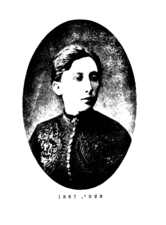
Pati Kremer
Pati Kremer was one of the pioneers of the Jewish workers’ movement in Eastern Europe. Already an active member in the 1890s of the so-called Vilna Group, the precursor to the Bund, she remained closely associated with the Jewish workers’ party until her death in the Vilna Ghetto.

Anna Kuliscioff
Born in Russia but educated in Switzerland, Anna Kuliscioff became one of the key figures in Italy’s early socialist movement and was a feminist advocate who concentrated on poor women’s issues. In her later life, she helped publish a socialist periodical and hosted a prominent salon, often with her partner Filippo Turati.
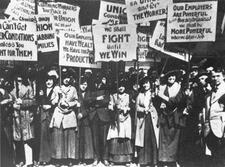
Labor Movement in the United States
Jewish American women have played a central role in the American labor movement since the beginning of the twentieth century. As women, they brought to trade unions their sensibilities about the organizing process and encouraged labor to support government regulation to protect women in the workforce.
Lucy Fox Robins Lang
A committed anarchist by age fifteen, Lucy Fox Robins Lang contributed greatly to both the labor movement and the anarchist movement as aide and confidante to major figures like Emma Goldman and Samuel Gompers, though her work was largely uncredited and behind the scenes.
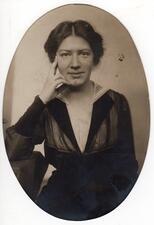
Käthe Leichter
A socialist feminist with a doctorate in political economy, Käthe Leichter was a prominent figure in “Red Vienna” during the interwar years. As a politician, labor organizer, and author, she dedicated her life to benefitting working-class women through social and political reform, and to the struggle against fascism.
Esther Luria
Esther Luria was a freelance journalist whose work appeared in many politically left-of-center Yiddish publications in the early twentieth-century United States. A socialist, a feminist, and a political activist, she was also an educator. She used her columns not only to advocate for the ideas in which she believed, but also to provide her mainly east European immigrant readers with a better understanding of their new environment.
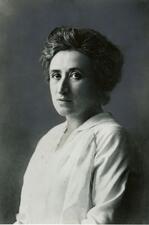
Rosa Luxemburg
Rosa Luxemburg was a socialist revolutionary known for her critical perspective. Born in Poland, Luxemburg had become an important figure in the world socialist movement by 1913. She argued against Lenin’s hierarchal conception of party organization, and against revisionism. Luxemburg was internationalist in orientation and unflinchingly dedicated to a radical democratic vision.
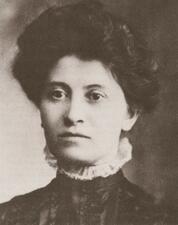
Theresa Serber Malkiel
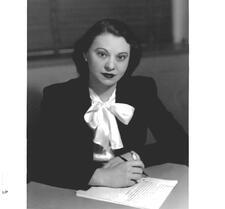
Bessie Margolin
Bessie Margolin was raised in New Orleans’s Jewish orphanage, where she learned powerful lessons in social justice that propelled her trailblazing legal career through the New Deal and Nazi War Crimes Trials to the United State Supreme Court, where she championed the rights of millions of American workers. A reluctant feminist who became the nation’s top fighter for equal pay for women and a co-founder of NOW, Margolin used intellect and charm to open courtroom doors for countless women who have followed.
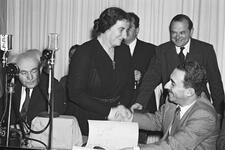
Mo'ezet Ha-Po'alot (Council of Women Workers)
The Mo’ezet Ha-Poalot was founded in 1921 as the women’s branch of the Histadrut, the General Federation of Workers in mandatory Palestine. In the name of women workers, the organization struggled for many years for equality in the eyes of the Histadrut, though it ultimately came to represent more broadly the interests of Jewish women in Palestine and Israel, including immigrants and housewives.
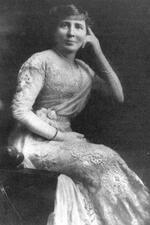
National Federation of Temple Sisterhoods
Founded in 1913 as the National Federation of Temple Sisterhoods and officially renamed Women of Reform Judaism (WRJ) in 1993, the WRJ has for more than a century galvanized hundreds of thousands of Jewish women to support and advance Reform Judaism, the Jewish people, and Jewish values in their home communities, around the country, and around the world.
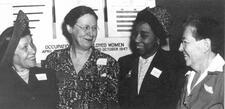
Pauline Newman
Pauline Newman played an essential role in galvanizing the early twentieth-century tenant, labor, socialist, and working-class suffrage movements. The first woman ever appointed general organizer by the International Ladies Garment Workers Union (ILGWU), Newman continued to work for the ILGWU for more than seventy years—first as an organizer, then as a labor journalist, a health educator, and a liaison between the union and government officials.
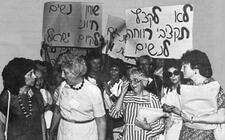
Non Governmental Organizations (NGOs) in Israel, 1948-2000
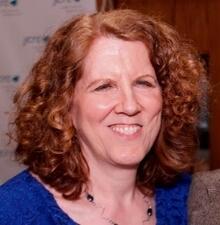
Barbara Penzner

Rose Pesotta
Rose Pesotta was an iconic labor organizer and president of the International Ladies' Garment Workers Union (ILGWU) in the early twentieth century. Pesotta saw her union organizing as an opportunity to fulfill the anarchist mandate “to be among the people and teach them our ideal in practice.”
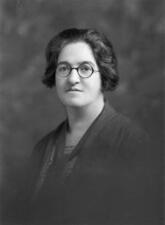
Marion Phillips
As Chief Women’s Officer of the Labour Party, Marion Phillips was one of the most important figures in the campaign to free women from domestic drudgery at the beginning of the twentieth century. Her work brought a quarter of a million women into the Labour Party.
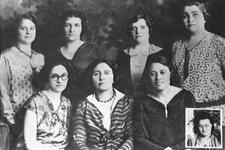
Pioneer Women in the United States
Anna Sophia Polak
Anna Polak was an important figure in the Dutch women’s movement in the early twentieth-century, who served as director of the National Bureau of Women’s Labor in The Hague for 28 years. Her controversial views on the importance of involving women in the working world led to her international recognition; she was beloved and admired by many.
Poland: Interwar
A minority habitually ignored by scholars, Polish-Jewish women played important roles in the changing cultural and political framework of the interwar years.
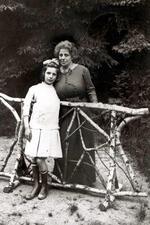
Justine Wise Polier
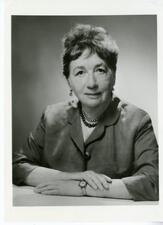
Hortense Powdermaker
Hortense Powdermaker explored the balance of involvement and detachment necessary for participant-observer fieldwork in cultural anthropology, stressing the ability to “step in and out of society.” Her secular Jewish identity was apparently a factor in learning this skill, exemplified in an academic career that included thirty years of college teaching and the writing of five major books based on widely diverse fieldwork studies.
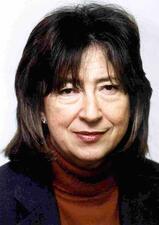
Frances Raday
Elizabeth Brandeis Raushenbush
Following in the footsteps of her famous father, Supreme Court Justice Louis Brandeis, Elizabeth Brandeis Raushenbush became an expert on labor legislation in the United States and one of its strongest defenders.
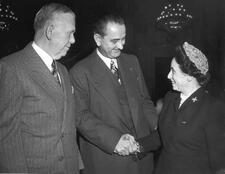
Anna Rosenberg
Anna Lederer Rosenberg was an administrator, diplomat, and public relations and manpower expert who advised multiple presidents. In 1950 she became the first female Assistant Secretary of Defense. Deeply admired by military and government leaders, Rosenberg’s success demonstrates how deftly she maneuvered within these male-dominated arenas.


